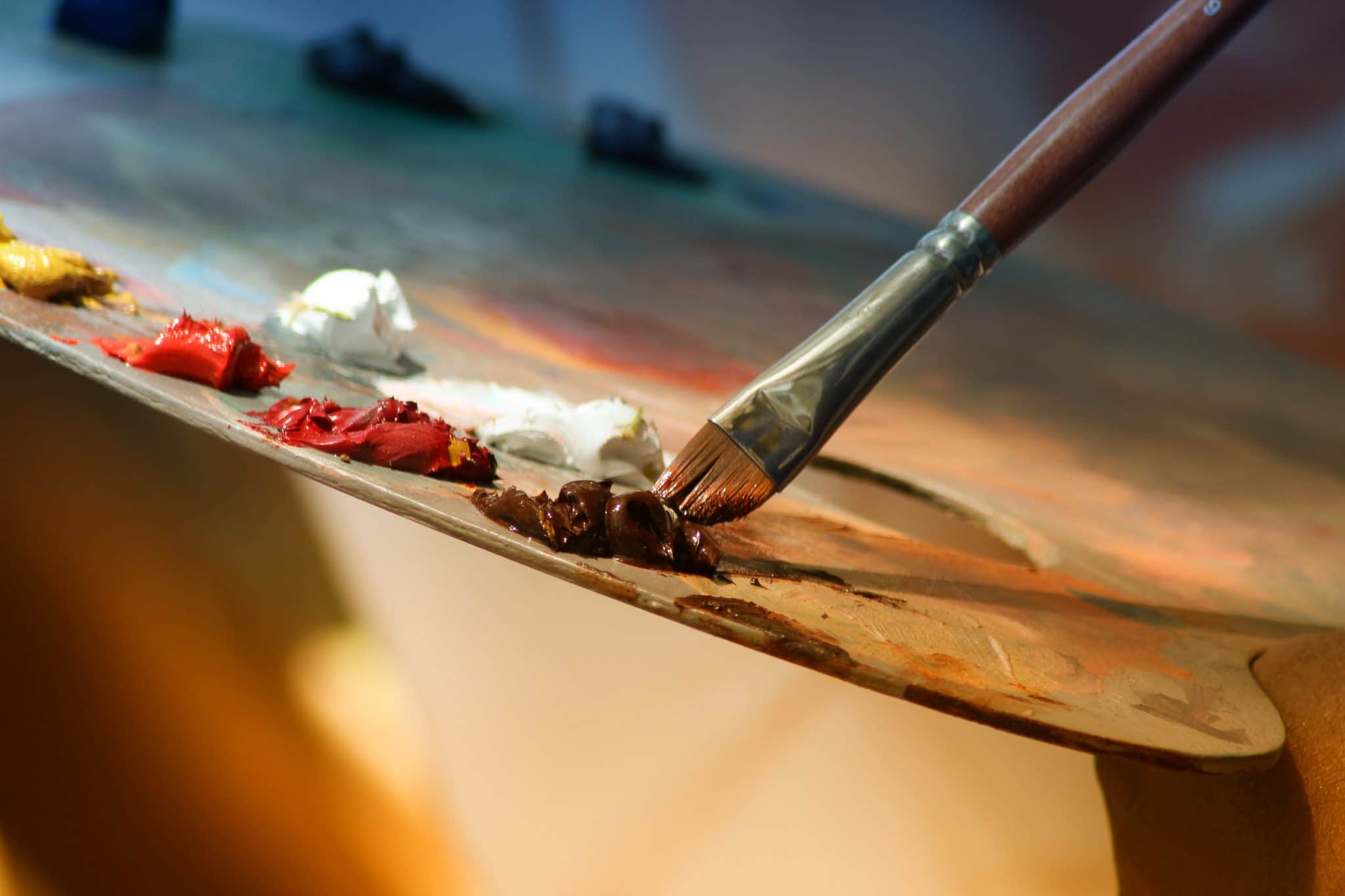You’ve likely heard the phrase “do what you love,” and there are few college majors this applies to more than art. People who gravitate toward art majors tend to be creative and derive enjoyment from applying their artistic skills, and these days there are plentiful career options for art majors that go beyond the traditional painter, photographer, and sculptor. Here, what to expect if you venture into the world of canvases, computer art, and curating on the college campus.
What’s the course of study for an art major?
In addition to the art-themed classes you’ll naturally be taking, art majors will generally still need to complete basic gen-ed classes such as English, history, social sciences, and natural sciences, as well as more wide-ranging art instruction such as art survey and color theory.
The art electives that make up the core of your major will depend on what your specialty is. If you go the traditional route and specialize in the “classic” fine arts (painting, photography, or sculpture, for example), expect to take in-depth classes in those genres. If you focus on art history, art education, or art management, your electives will be geared more toward the individualized requirements for those specialties (i.e., teaching courses for art education, or business courses for art management). There will typically be a senior project or final portfolio you’ll need to produce to highlight your specialty—good practice for the materials you’ll need to submit to find employment once you’re in the work world.
So where can a major in art lead you?
Grad school offers further opportunities to delve deeper into your chosen niche.
If you’ve got a Bachelor of Fine Arts, or BFA, in art, art history, or another art-themed fields, you can extend your art schooling with a Masters in Fine Art (aka an MFA). If you plan on eventually heading into academia or to head up an established artist’s group, Ph.D. programs are the next step on the educational ladder.
Sky’s the limit when it comes to the varied careers at an art major’s disposal:
Some jobs you might go for with a BFA:
- Fine artist (including painter, illustrator, or pottery, glassware, or textile maker)
- Graphic designer/art director
- Interior designer
- Fashion designer
- Art teacher (either at the elementary, secondary, or college level)
- Floral designer
- Forensic artist
- Museum curator or art restorer
- Industrial designer
Plus, it’s an increasingly high-tech world—and there’s definitely a place for artists in that world. Instead of spending your days immersed in clay and watercolors, you could put your artistic skills to use creating phone apps or video games, designing pages for the Web, or even trying your hand behind the lens as a filmmaker.
Certain niches pay well—and you might be able to make your own hours.
Everyone’s heard the “starving artist” trope, but that doesn’t have to be the case if you get an art degree. Certain careers, such as multimedia artist and animation, are currently enjoying a faster-than-average rate of growth, while becoming an art director, for which the median annual wage in 2016 was nearly $90,000, can help ensure you won’t have that “starving” in front of “artist.” Plus, depending on what path you take, it’s often easier to break out of the traditional 9-to-5 and work as a freelancer, consultant, or even as the proprietor of your own company.
Majoring in art taps into and develops certain skill sets that can help you no matter what career you ultimately choose.
Of course, creativity is key when you’re studying art in college and completing necessary coursework, but there are other skills integral to such a major that people often don’t think about—and they’ll all help you in the workplace and in life in general. Hone your research skills as an art history major; develop your critical thinking and problem-solving abilities (you’ll often be tasked with examining, interpreting, and drawing conclusions about the art or theory you’ll be studying); find your inner focus as you patiently learn how to apply a new artistic technique or process; and learn how to develop a thick skin, an invaluable trait to have in any future role. What you create and present in college will be poked, prodded, and critiqued by your professors, your classmates, and sometimes even professional artists, more or less mandating that you open your mind to constructive criticism and learn how to adapt to different styles and requirements.
By majoring in art, you’ll get to tap into your creativity and do what you every day.
You can’t beat going to class, and eventually work, each day and indulging in one of your favorite pastimes. Not only will you be privy to a built-in creative outlet, but you’ll also be able to enjoy the self-satisfaction of producing a tangible product that you can show to others, express your individuality through your work, and never run out of inspiration. Artists are informed by the world around them—your source list can be limitless.



